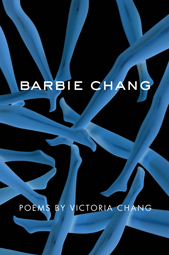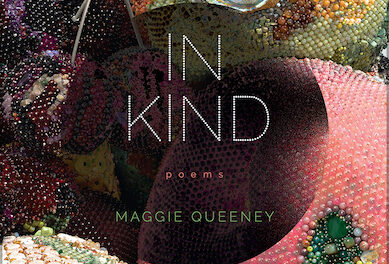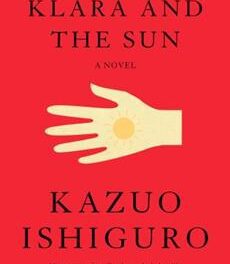Editorial Assistant Chelsea Whitton: “Someone says it is difficult to write poems / that are both domestic and ambitious,” writes Victoria Chang in Barbie Chang (Copper Canyon, 2017), her fourth collection. This book rejects the implication that domestic poems—work about childbearing and rearing, about caring for one’s aging parents, about social anxiety and the link between financial stability and personal agency—lack the stakes for ambitious literature. Instead, ambition and domesticity are the magnetic poles between which the eponymous Barbie, the poet’s semifictionalized, through-the-looking-glass avatar, spins. And spin she does.

The collection is divided into four sections. I and III contain “Barbie Chang” poems. Told in the third person, these longer poems are made up of couplets, with every other line indented half an inch. By contrast, Sections II and IV, both entitled “Dear P,” contain first-person direct-address sonnets of devotion to the speaker’s daughter. All poems in Barbie Chang employ a volatile associative syntax in which sonic relationships direct the narrative. Repetition and homonymic wordplay work as hitches between train cars, infusing the lines with restlessness, urgency and ambivalence:
. . . she wants to gasp to
elope in the form of
something other than a man she wants
to throw up the gasp so
she can finally be free of its ring and
creep she wants it to
leave her alone wants it to leave
wants it.”
Barbie Chang is ruled by her ambitions, “always wanting / something better.” She wants acceptance into a mean-girl group of “beautiful thin mothers at [her children’s] school who form a perfect circle,” and to get it right with Mr. Darcy, a ghostly suitor who “lacks flesh” but represents a romantic and socioeconomic ideal. Hers is the paradoxical ambition of the one who identifies as an outsider: “[S]he fell in / love with the Circle but she is allergic / to it.” Her central struggle is the desire to belong and attain love without having to become someone else. “When she / says she wants to be / visible she means she wants to be / invisible” or “to blend / into the dead end.” Whiteness affords a kind of standard-bearing invisibility, a way of always-already embodying the norm. The ease with which Mr. Darcy exists without existing, and with which the white mothers in the Circle move about their world, is unattainable for Barbie Chang, regardless of her striving.
Even the speaker’s name, “Barbie Chang,” seems in conversation with this notion. It is difficult to read or hear the name Barbie without thinking of Mattel’s ubiquitous doll and character. Mattel’s Barbie is blonde and fair, pretty and fun. She drives a Jeep, loves the beach, and is effortlessly good at everything, effortlessly beloved. It is an aptly aspirational name for the poet’s aspiring alter ego. Chang’s Barbie is not effortless; she embodies the contradictions implied by her name. She “knows / that an outline of a tree can never be / at tree,” but she seems to find identity in perfecting and, later, destroying this outline. These poems debate the pros and cons of membership as their protagonist searches for a skeleton key of belonging.
At the same time, Barbie is tasked with caring for and, ultimately, grieving the loss of her aging parents—her mother’s body to an aggressive lung cancer and her father’s mind to encroaching dementia. The pieces that deal with this subject feel like a continuation of the poet’s work from her last collection, 2013’s The Boss. The twin burdens of the speaker’s empathy and ambivalence bring an aching balance to these poems’ emotional logic.
Sections II and IV run the emotional gauntlet of new motherhood. These poems are tighter sonically, and their address is by turns frightened, worshipful, and grasping. In tones of rapture and self-abnegation, the speaker contends with a brutal transformation. Descendants of Donne’s Holy Sonnets, these “Dear P.” sonnets are poems of devotion, torment, and transformation; they play with scale and employ dramatic conceits to elevate and complicate the dynamics of the central relationship. It’s an ingenious way to subvert expectations for “domestic” poetry and reveal the urgency and stakes of overwhelming love.
There’s much to love about the poems in Barbie Chang—their music, their figurative precision, their heart—but what I like best is the way they’re always turning away from conclusions that are easy, or obvious. Chang foregrounds effort, struggle, and complexity throughout the collection, showing us the toll ambition takes and how existing power structures get preserved precisely through their exclusivity and desirability to outsiders. At the same time, Chang’s speaker is bold-faced in her ambition as she sets her sights on “form[ing] / her own Circle not to / irk the Circle but to create something / new.”
Chelsea Whitton is a second-year poetry PhD fellow at the University of Cincinnati. Her writing has appeared in various online and print publications, most recently in Iron Horse, Atlanta Review, Vinyl, and Cream City Review. Her poem “Spear Side (Partilineality)” won last year’s (2018) Sandy Crimmins International Poetry Prize. She is the author of Bear Trap (Dancing Girl Press, 2018).










